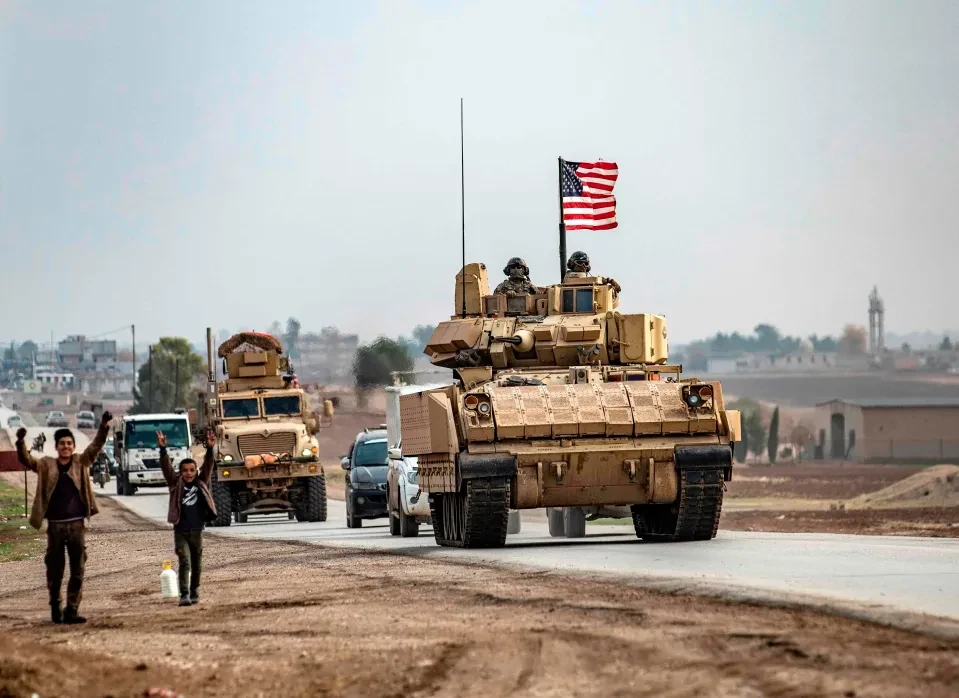US presses Türkiye, Israel to hold Syria deconfliction talks: Report
 U.S. President Donald Trump arrives to greet Jordan's King Abdullah II bin Al-Hussein and Crown Prince of Jordan Hussein bin Abdullah as they arrive at the White House on February 11, 2025 in Washington, DC. (AFP Photo)
U.S. President Donald Trump arrives to greet Jordan's King Abdullah II bin Al-Hussein and Crown Prince of Jordan Hussein bin Abdullah as they arrive at the White House on February 11, 2025 in Washington, DC. (AFP Photo)
The Donald Trump administration of the U.S. urged Türkiye and Israel to engage in deconfliction talks regarding their military operations in Syria, according to a Washington official and a regional source cited by Middle East Eye.
After the growing tensions between Ankara and Tel Aviv since the fall of Bashar al-Assad’s government and the 61-year Baath regime, the U.S. is concerned about the proximity of Turkish and Israeli forces in Syrian airspace and the increased risk of unintended military confrontation.
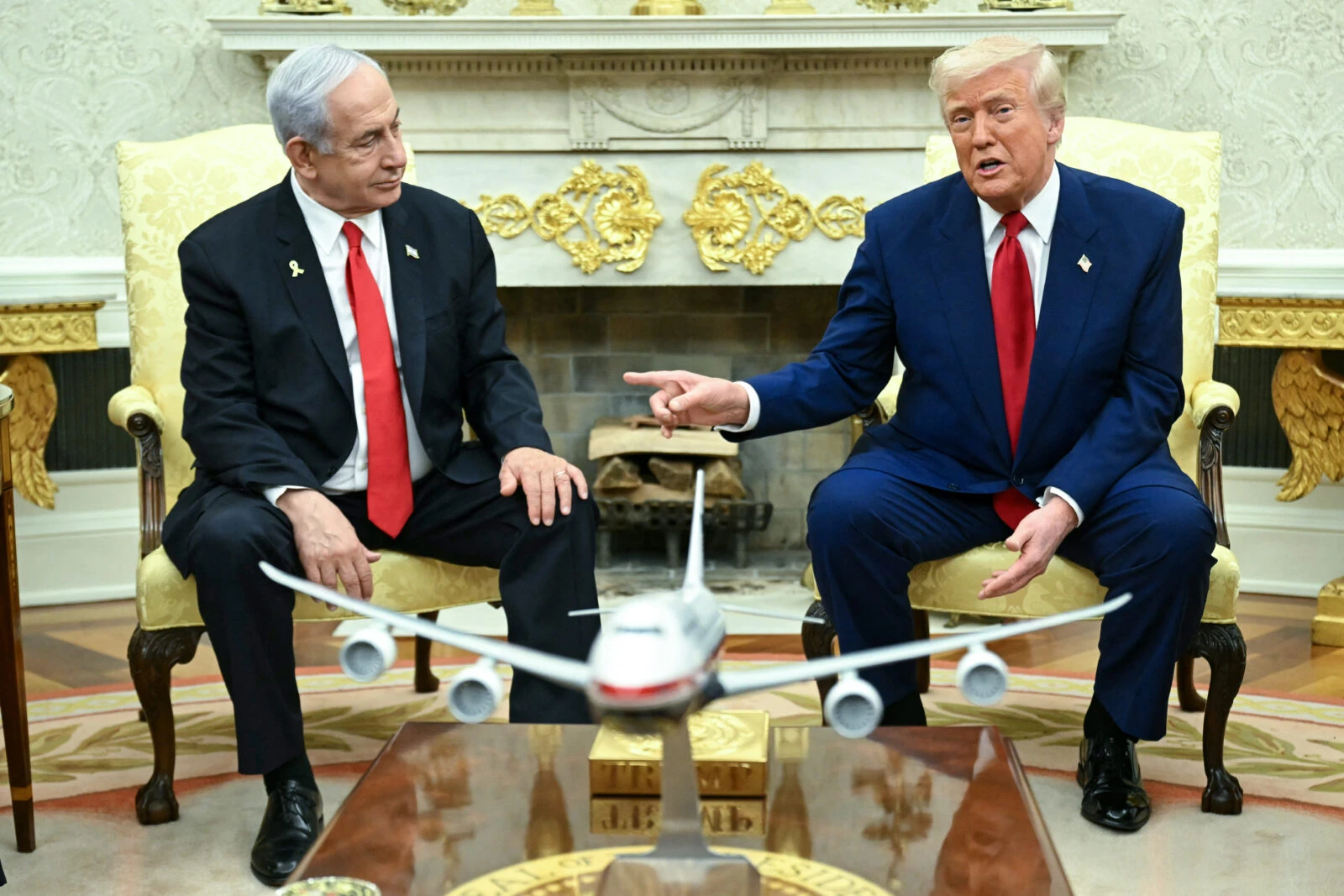
Israeli airstrikes prompt talks
Israeli Prime Minister Benjamin Netanyahu and other officials have repeatedly criticized Türkiye’s extended military presence in Syria, calling it a “red line”—especially if Ankara assumes control over sections of Syrian airspace.
Earlier this month, Israel conducted multiple airstrikes on Syrian military sites, including the Hama and Tiyas (T4) airbases, where Türkiye had reportedly planned to inspect T4 for potential reconstruction before the attacks.
Following the strikes, technical-level deconfliction talks between Türkiye and Israel were held in Baku, Azerbaijan. Turkish Ministry of Defense (MoD) sources announced the talks by saying, “The first technical meeting was held yesterday (April 9) in Azerbaijan to establish a deconfliction mechanism to avoid unwanted incidents in Syria. Efforts will continue toward establishing this mechanism.”
Israeli officials also later confirmed the talks. The Israeli Prime Minister’s Office confirmed that delegations from Israel and Türkiye met in Baku to discuss mutual interests and the establishment of a deconfliction mechanism in Syria aimed at preventing future clashes.
“In line with a directive from Prime Minister Benjamin Netanyahu, a diplomatic-security delegation led by National Security Council Director Tzachi Hanegbi and including senior representatives from the Ministry of Defense and security agencies met with a Turkish delegation,” the statement said.
Israel expressed gratitude to Azerbaijan and President Ilham Aliyev for hosting the talks. “Each side presented its interests in the region. It was agreed to continue on the path of dialogue to maintain regional stability,” the office added.
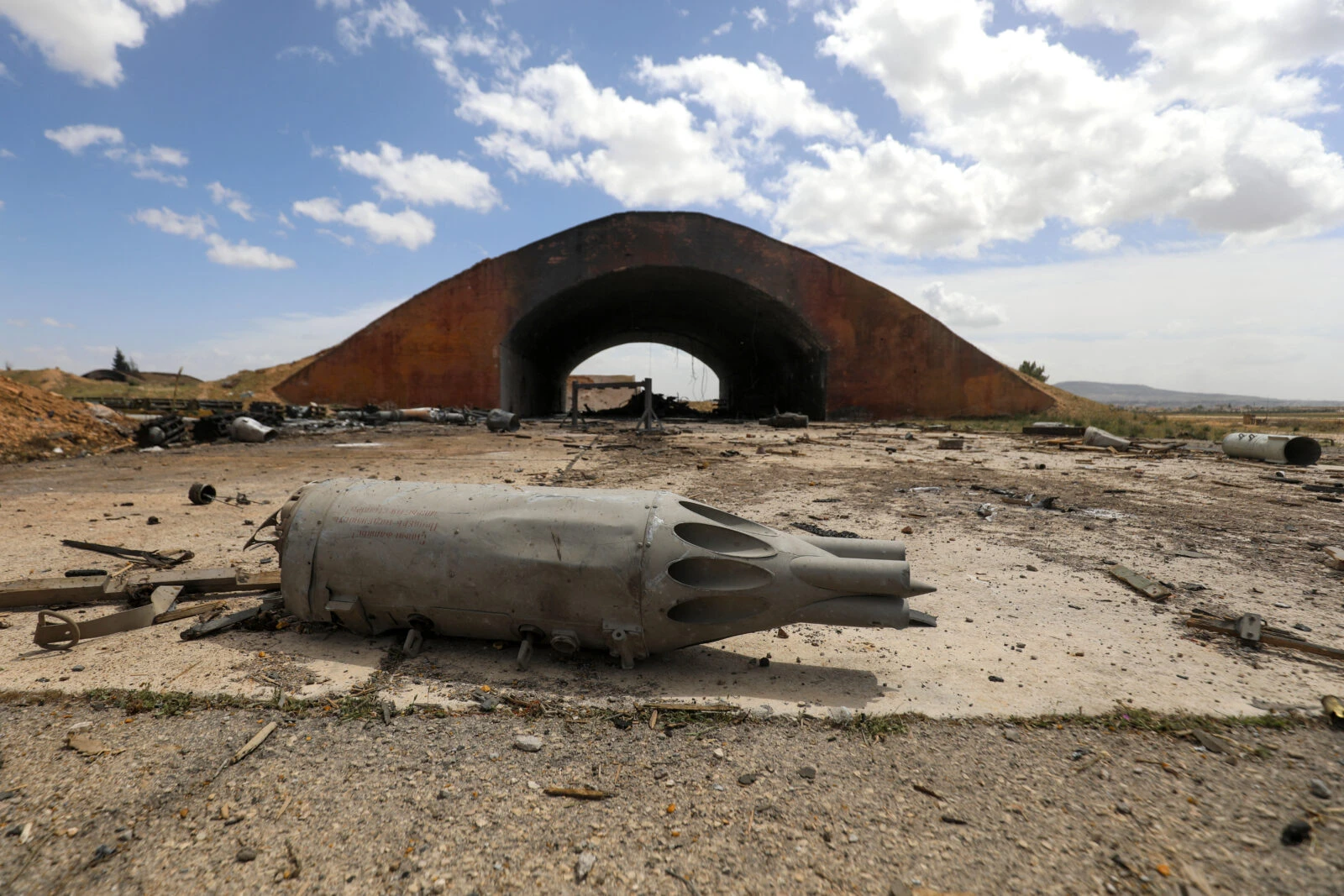
Washington’s role in encouraging dialogue
A U.S. official stated that Secretary of State Marco Rubio emphasized the importance of de-escalation and coordination during his April 3 meeting in Washington with Turkish Foreign Minister Hakan Fidan.
Rubio later reinforced the message in a follow-up call with Fidan, underscoring U.S. support for continued deconfliction efforts to avoid potential incidents in Syrian airspace.
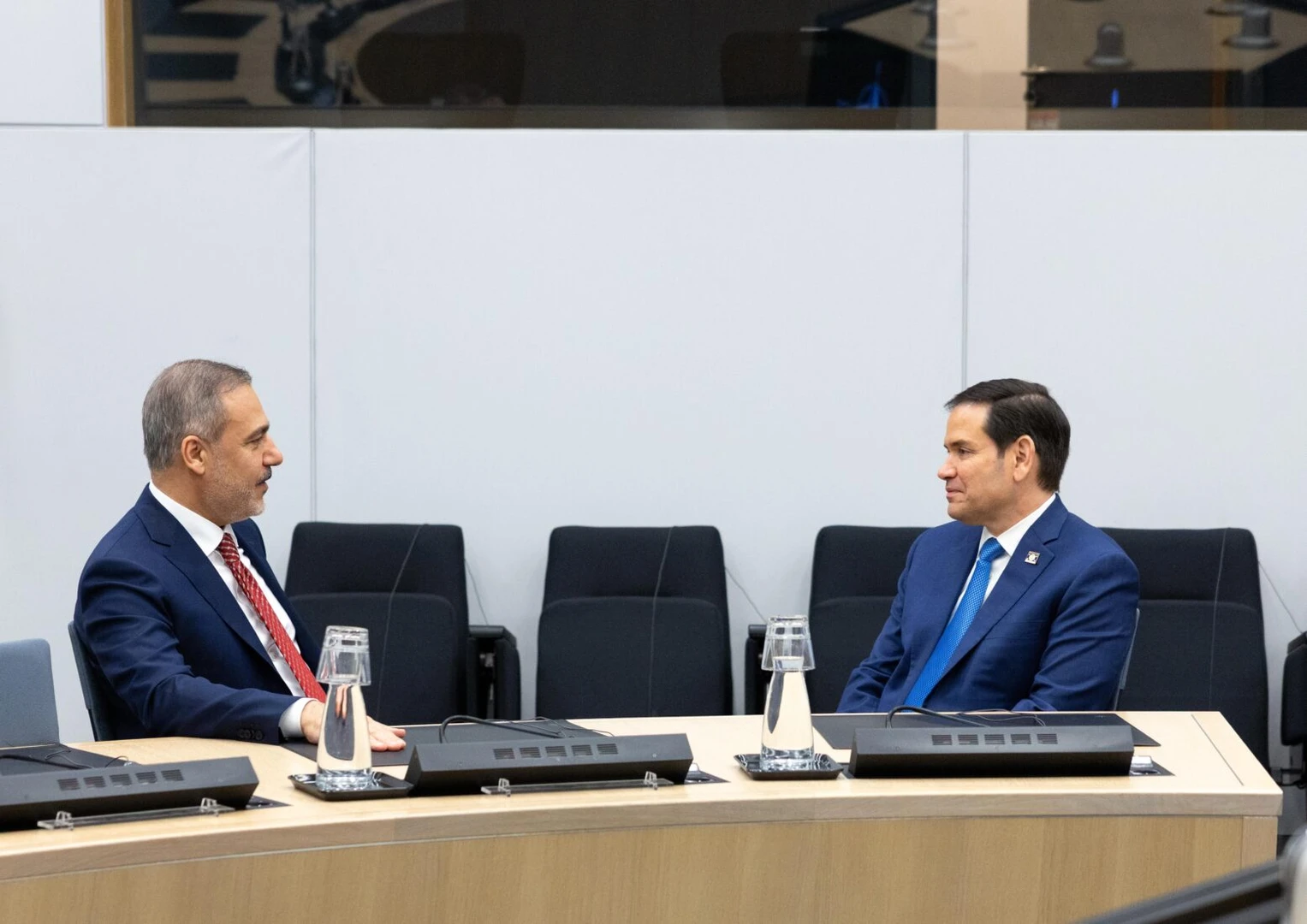
Türkiye downplays US role, cites existing mechanisms
Turkish officials have downplayed Washington’s involvement, noting that Türkiye already maintains deconfliction channels with Russia, Iran, and the U.S. in Syria.
A Turkish official stated, “It’s not a big deal,” suggesting that adding Israel to these existing frameworks is routine.
A separate source added that “Türkiye and Israel previously were in touch during Ankara’s evacuation of its citizens from Lebanon last year,” a separate source familiar with the matter told MEE. “The two countries also used U.S. Central Command (CENTCOM) as a channel for deconfliction in the past.”
The newly discussed mechanism would reportedly offer 24-hour coordination access but would not require a formal agreement—an informal understanding would be sufficient, according to regional sources. The mechanism might be similar to what Tel Aviv had with Russia when Assad was in power.
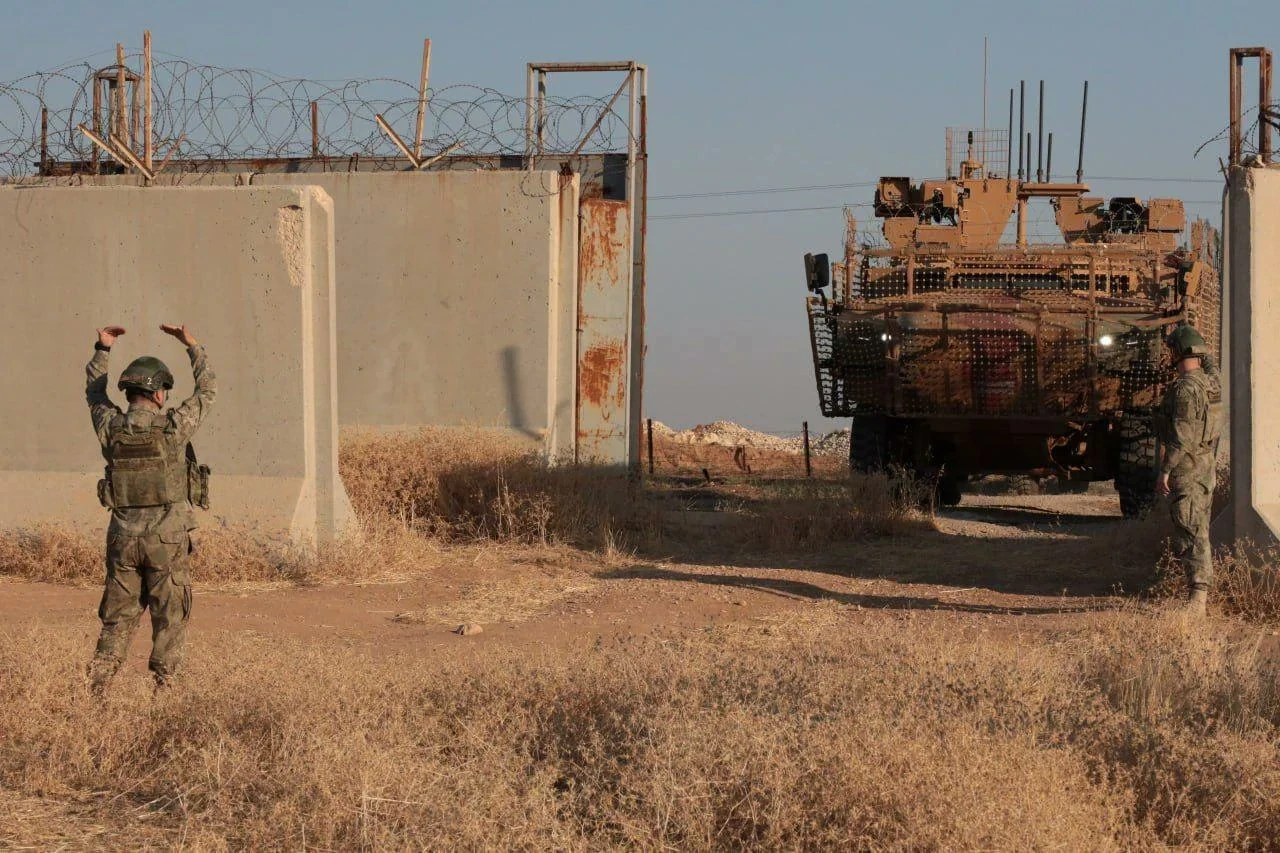
Israeli hesitations and Türkiye’s broader regional goals
An Israeli official, speaking anonymously, noted Türkiye’s reluctance to formalize a deconfliction arrangement since December.
Turkish officials allege that Israel’s objective goes beyond accident prevention, aiming instead to establish a sphere of influence in Syria independent of the Damascus government.
Ankara argues that such a move would further destabilize Syria at a time when the country urgently needs international aid and post-conflict reconstruction.
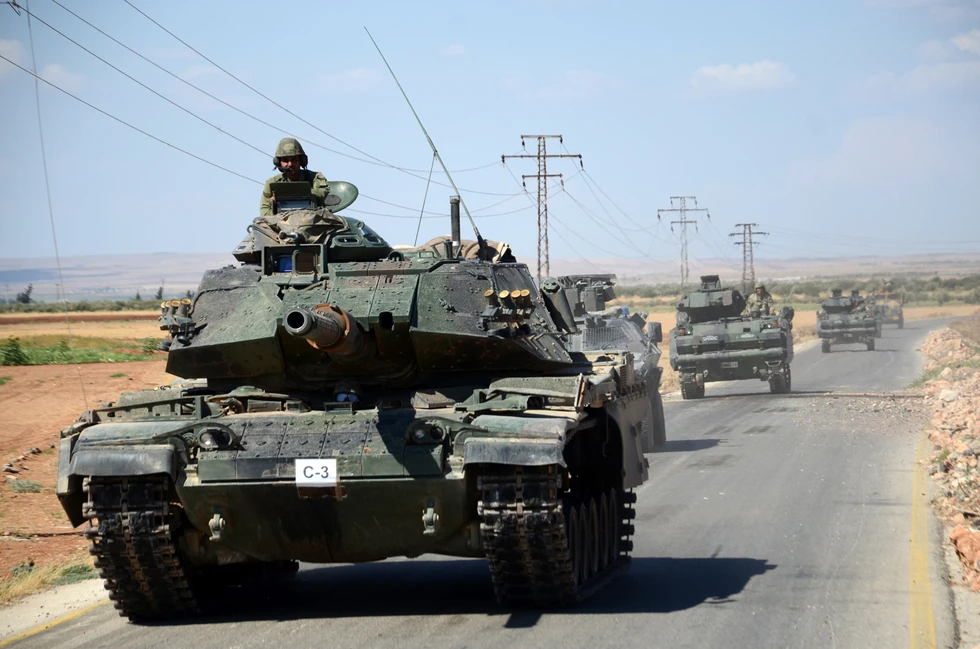
Türkiye’s military presence in Syria to continue
Despite U.S. mediation, Turkish sources speaking to MEE said Ankara will maintain its plans to establish military bases in Syria. These bases are intended to counter the terrorist organization Daesh to prevent its re-emergence.
Speaking at the Antalya Diplomacy Forum, Turkish Deputy Foreign Minister Nuh Yilmaz clarified recent interactions with Israel, explaining that a meeting held in Azerbaijan was strictly technical and focused on deconfliction, not diplomacy.
He explained that such deconfliction efforts are well known among military and security personnel: “When you use airspace, you need to be in communication with other actors using that airspace. We’ve done this before—with Russia in Syrian airspace and with the U.S. in Lebanon. When we evacuated our citizens from Lebanon, we also had deconfliction talks with Israel. This doesn’t mean it was a political or diplomatic meeting.”
“This is a good starting point because we are trying to prevent any conflict in Syrian airspace. Our minister also clearly said, In order to speak of better relations or normalization with Israel, we must see that the genocide in Gaza has stopped and that a ceasefire has been established. We need to see normalization at that level. Then we can talk about better relations with Israel.”
He also announced the new regional coalition formed by Türkiye with Syria, Iraq, Lebanon, and Jordan to conduct joint operations against Daesh. According to Yilmaz, the coalition will set up a joint headquarters in Damascus and begin operations upon formal request from the Syrian government.
A formal defense pact between Türkiye and Damascus, which would facilitate Turkish military aid and training for Syrian forces, has yet to be signed.

